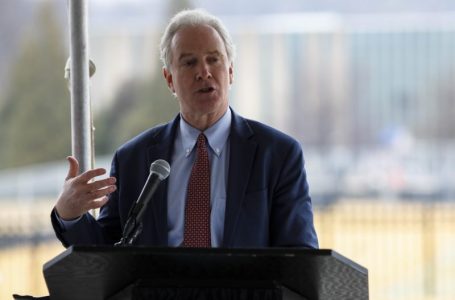Cuban-American lawmakers defend Monroe Doctrine amid progressive push to end 200-year-old policy

Cuban-American lawmakers are vigorously defending the Monroe Doctrine, a two-century-old policy that forms the foundation of U.S. policy toward Latin America.
Rep. Mario Diaz-Balart (R-Fla.) told reporters recently that the Monroe Doctrine is “alive and well” and “more necessary now than ever.”
The doctrine, which was established in 1823 by President James Monroe, declares that the Americas are closed to foreign colonization and the interference of European governments. It has long been interpreted as barring the U.S. from meddling in the internal affairs of other countries in the Hemisphere.
Several progressive members of Congress, led by Rep. Alexandria Ocasio-Cortez (D-N.Y.), have sought to end the Monroe Doctrine, arguing it symbolizes a long history of U.S. interventionism in Latin America and has been used to limit sovereignty and promote U.S. interests.
However, Diaz-Balart and other Cuban-American lawmakers opposed to Ocasio-Cortez’s push to end the Monroe Doctrine say that it is a bulwark against foreign intervention and is needed to protect the United States and its allies in Latin America.
“The Monroe Doctrine was established to ensure that our friends and neighbors in Latin America could be free from foreign meddling and domination,” Diaz-Balart said. “It is as important today as it was 200 years ago.”
Rep. Anthony Gonzalez (R-OH) argued that the Monroe Doctrine remains an important part of U.S. foreign policy and should be used to defend the region from growing foreign influence.
“We simply cannot allow a foreign power to threaten the sovereignty and security of our allies in Latin America,” Gonzalez said.
Many Democrats, including Sen. Robert Menendez (D-NJ), have argued that while the Monroe Doctrine might be outdated, there are aspects of it that are still necessary in the 21st century. Menendez believes the policy should be updated to focus on economic and social development while still confronting foreign interference.
“It’s time to bring the Monroe Doctrine into the 21st century,” Menendez said. “We must ensure that foreign interference does not have a negative impact on the region and its people, while also promoting economic and social development in the region.”












